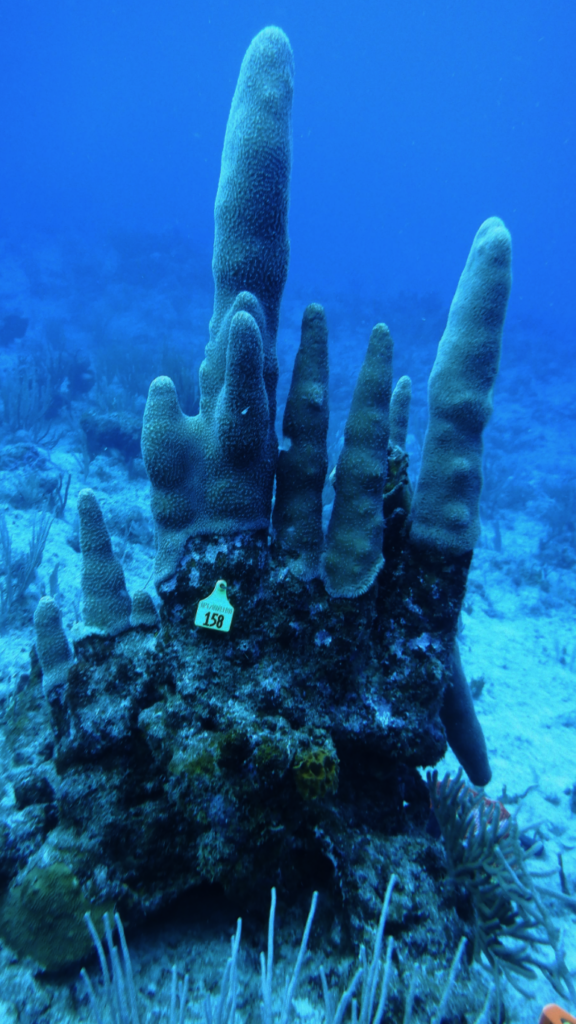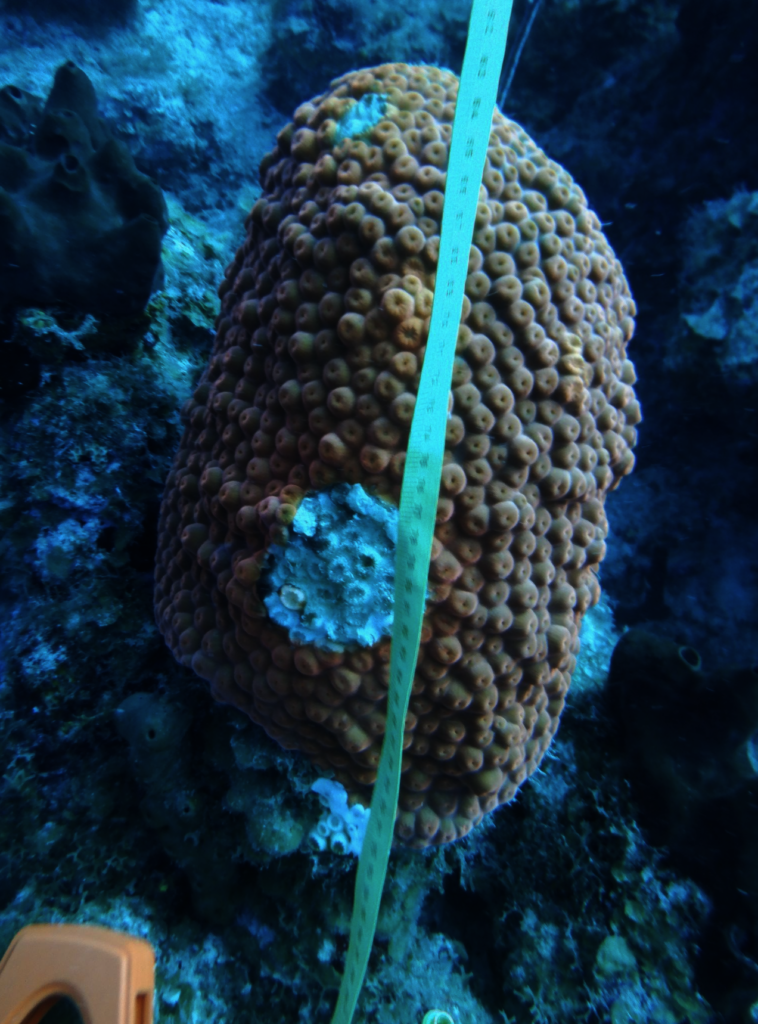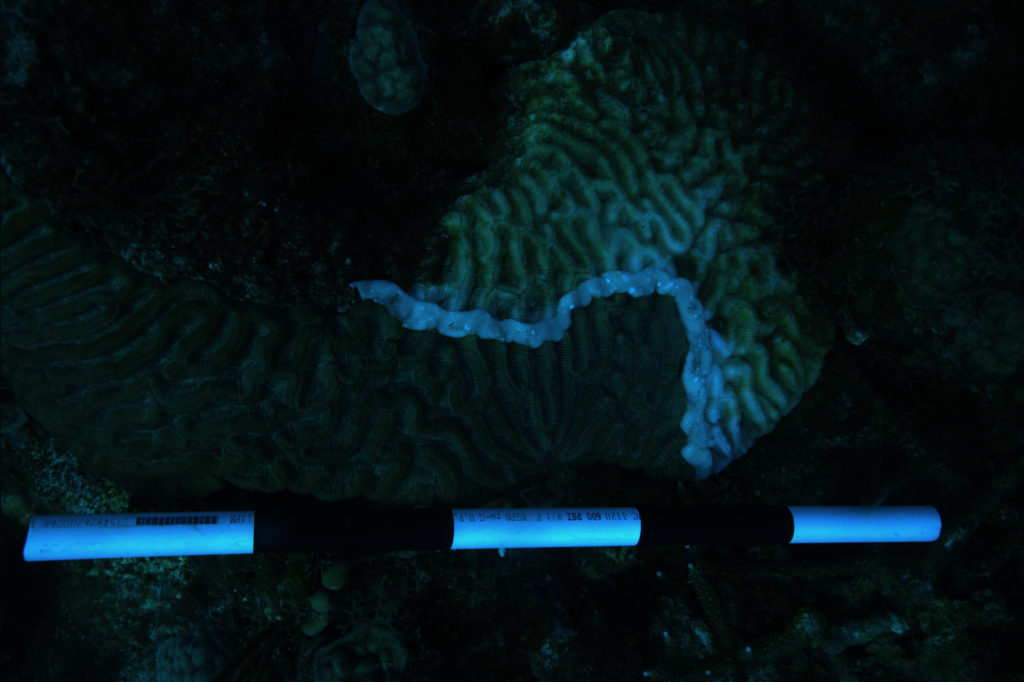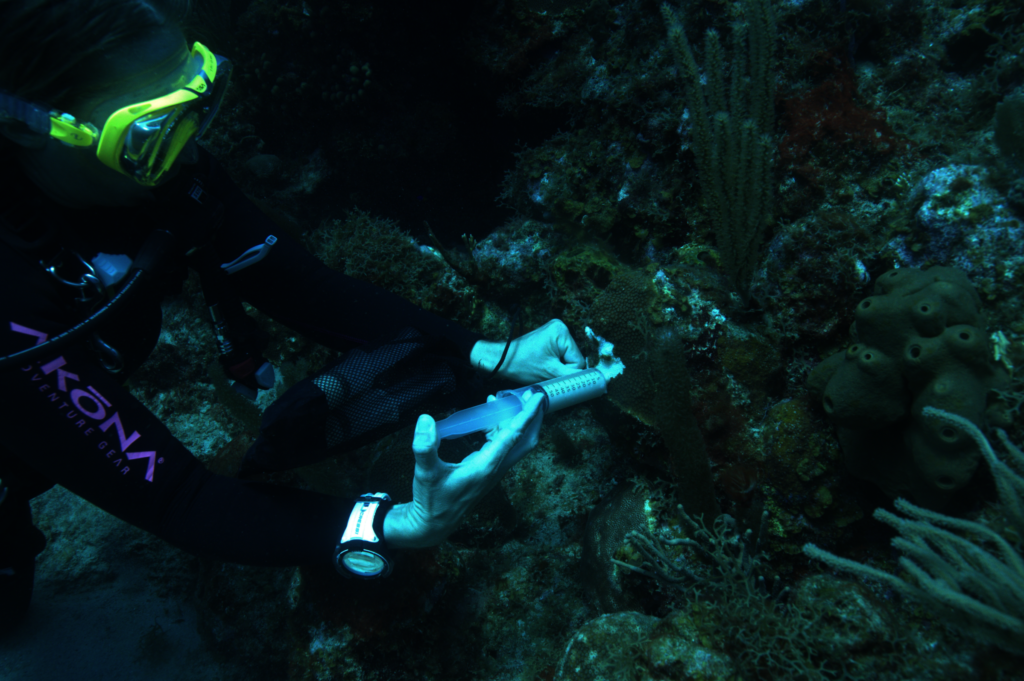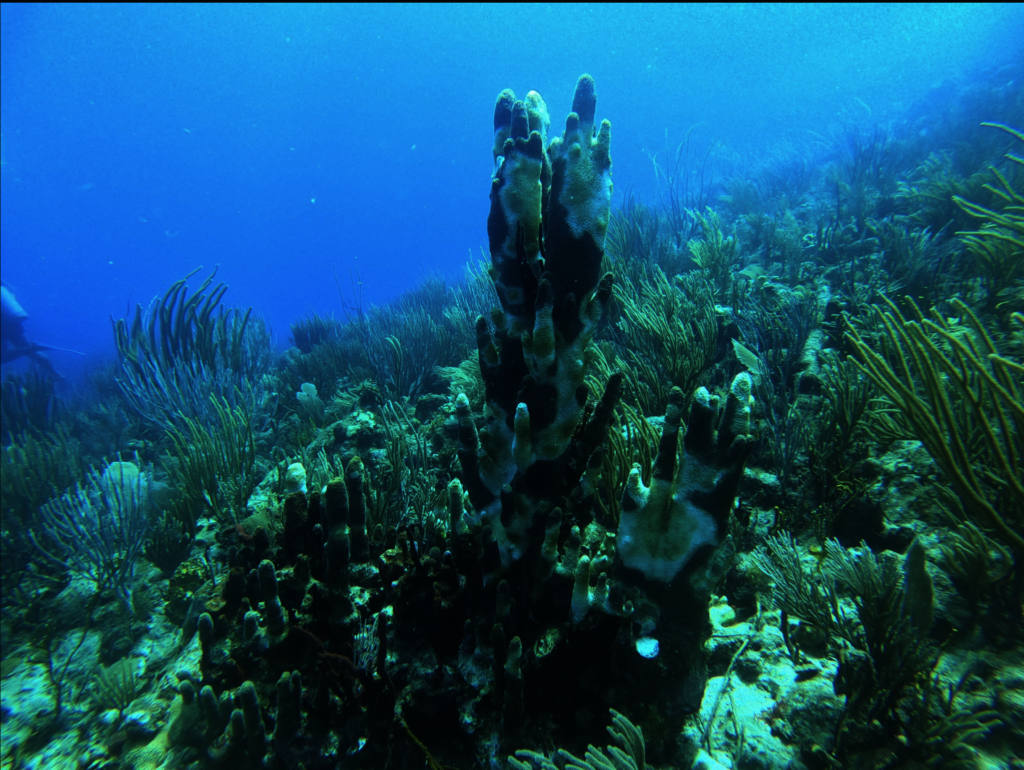By Kendyl Berna | Founder
Since our last update, Beyond The reef has continued to remove siginifgant amounts of abandoned fishing debris (such as nets, ropes, pots and other trash) from the BVI, but since I wrote more about those in the last report, I thought I would focus this one on Stony Coral Tissue Loss Disease.
Stony Coral Tissue Loss Disease (SCTLD) is a lethal disease that affects more than 20 species of stony corals (or hard corals) throughout the Caribbean. This disease was first noticed in Florida in 2014, and has since continued to spread, reaching the BVI's in 2020. Unlike other coral diseases, SCTLD is fast spreading and once infected, coral colonies can be 100% dead in just a few weeks (depending on size of coral colony). Although it was first spotted in the BVI less than 2 years ago, it is now present throughout the territory.
Since Stony Corals are slow growing and form the building blocks of a reef system, their rapid loss will be felt widespread as reef systems play a vital role in coastal defence, tourism and fisheries stock (important habitat and shelter).
Luckily, a specially bioengineered antibiotic paste has been created that can be applied to corals to stop the disease and save the remaining live tissue. It has proven to be over 90% effective! It is very labor intensive process and requires physically applying it to each coral, but it is currently the best known solution for mitigating the spread.
Over the last year Beyond the Reef has been working with the Ministry of Natural Resources, National Parks Trust of the Virgin Islands and BVI Scuba Operators to tackle SCTLD in the BVI.
How have we been involved?
Thank you to Laura Arton of Beyond The Reef who has been spearheading this initiative and Tim Jackson for the photos.
Project reports on GlobalGiving are posted directly to globalgiving.org by Project Leaders as they are completed, generally every 3-4 months. To protect the integrity of these documents, GlobalGiving does not alter them; therefore you may find some language or formatting issues.
If you donate to this project or have donated to this project, you can receive an email when this project posts a report. You can also subscribe for reports without donating.
